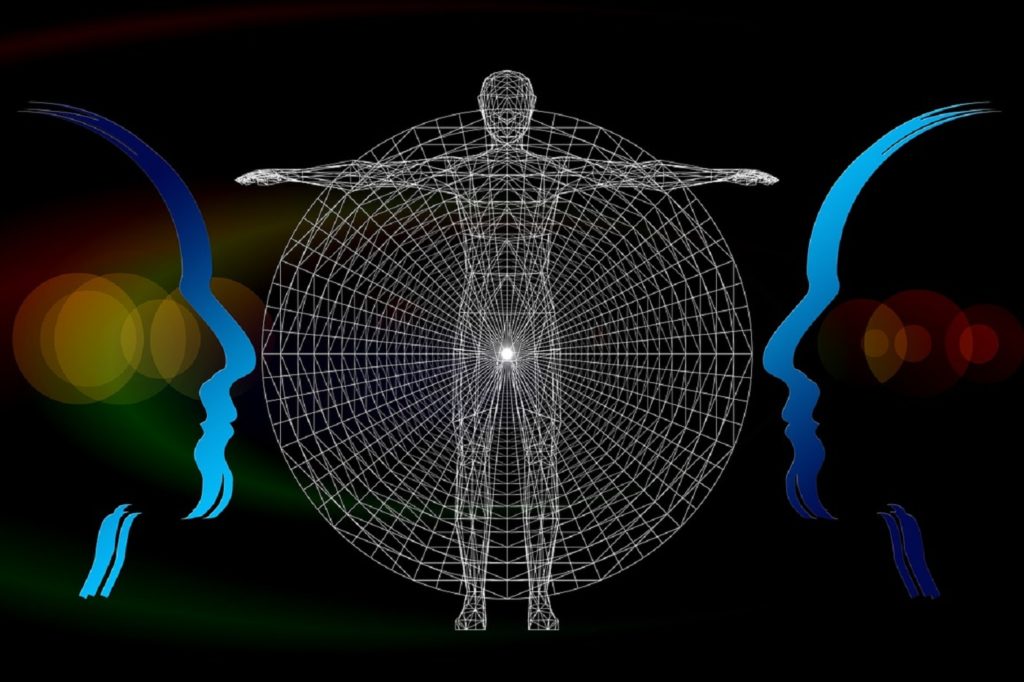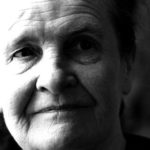If the election of Donald Trump in 2016 made manifest the fact that the United States is a deeply divided country ill at ease with itself, then the COVID crisis and the protests and riots of this last summer have served merely to emphasize the fact. Chaos and turmoil are the order of the day. Even the most solid things appear to be melting into air, and all that was once sacred seems to be profaned, from the importance of the nation-state to the boundaries of sexual morality and the definition of the family. And in the midst of all this, matters such as freedom of speech and of religion—so long considered basic for the well-being of society—are now being decried as tools of oppression and instruments of hatred.
Is there anything that ties these varied phenomena together? Is there some underlying condition or set of conditions of which these problems are symptomatic, or are we simply living at a moment in time when there is a perfect storm of unrelated conflicts that have combined to destabilize those things that previous generations simply assumed to be as constant as the north star? The answer to that question is surely necessary both to understanding our times accurately, and developing thoughtful and constructive responses.
I want to suggest that one key factor behind the transformations we see all around us is the normative notion of the self with which we operate. In this first installment of a two-part essay, I sketch in brief compass the rise of the modern western way of understanding the “self.” Tomorrow, I tease out some of the ways this has reshaped—and continues to reshape and even destabilize—western society, before offering a few brief concluding thoughts on how Christians might respond.
What is the “Self”
Start your day with Public Discourse
Sign up and get our daily essays sent straight to your inbox.What do I mean by “self”? By “self,” I mean the way we imagine our purpose in life, what makes us tick, what makes us happy, wherein our freedom consists. This self is today one of primarily psychological construction. We think of ourselves in terms of our inner convictions, our feelings; we consequently interpret the purpose and meaning of our lives in line with this, seeing, for example, happiness in terms of an inner sense of psychological well-being. This is what sociologist Philip Rieff dubbed “psychological man” and what Charles Taylor and Alasdair MacIntyre call “the expressive individual.”
In earlier ages, personal meaning was something discovered by individuals through being educated in how to locate themselves within established external structures such as family, church, or nation. With the psychological turn, however, these things come to be seen as potential hindrances to personal authenticity.
It is characteristic of such a type to see external authority as problematic. In earlier ages, personal meaning was something discovered by individuals through being educated in how to locate themselves within established external structures such as family, church, or nation. With the psychological turn, however, these things come to be seen as potential hindrances to personal authenticity.
We see this manifested most radically in the claim that one can have a woman’s body and yet still be really a man: inner psychological conviction is the true foundation of identity to which outward, biological reality must yield. Yet we should not allow the use of an extreme example such as transgenderism to trick us into believing that this is the preserve of a small, marginal minority. The notions that human flourishing is found primarily in an inner sense of well-being, that authenticity is found by being able to act outwardly as one feels inwardly, and that who we are is largely a matter of personal choice not external imposition, are intuitions we all share. Bruce Jenner could plausibly become Caitlyn only within a cultural framework that was already intuitive by 2015.
The Inward Turn and the Demolition of Transcendence
To offer an abbreviated narrative of the intellectual genealogy of psychological selfhood, we can start in the eighteenth century with Jean-Jacques Rousseau. He argued that human beings would be at their most authentic if they were not forced to play alien roles imposed on them by the polite conventions of society. In his world, it is society that corrupts, with its demands that we conform to its conventions. Society’s ills stemmed from this alienating external environment. In the hypothetical state of nature, human beings would have been free, morality would have rested on a spontaneous empathy, and everyone would have been outwardly that which they felt themselves to be inwardly.
This notion—that culture and civilized society was the problem and that rightly tuned emotions were the answer—was picked up and popularized by the Romantics, whose artistic focus on nature was the means by which they connected their audience with authentic emotions. The accent lay on inner psychology as constitutive of the real person. True selfhood and true happiness were found within.
My grandfather said he found his work satisfying because it enabled him to put food on his family’s table and shoes on his children’s feet. This response is striking precisely because it is so outwardly directed.
We can see how influential this development has been by reflecting on the notion of job satisfaction. I recall once asking my grandfather, a lifelong sheet metal worker in a Birmingham factory, if he had found satisfaction in his work. His answer was that he did indeed find his work satisfying because it enabled him to put food on his family’s table and shoes on his children’s feet. This response is striking precisely because it is so outwardly directed. Any feelings of satisfaction he had were the result of actions he did for others. Ask me the same question and my answer would be that I find my work satisfying because I enjoy teaching. It makes me feel good to stand in front of a class and talk about interesting ideas. To be colloquial, it gives me a buzz. The difference is clear: my notion of satisfaction is an inward-directed one, less to do with my impact on others and more to do with my own immediate feelings than with my impact upon others.
If the turn inward to psychology and emotions is one major element of the development of the modern self, the next is the demolition of the notion of transcendent human nature. The nineteenth century is critical here. Hegel’s phenomenology set the historical development of human consciousness at the center of his philosophical inquiries, thus potentially relativizing any specific historical expression of human nature. Marx famously turned him on his head, placing economic relations at the heart of history and thus making human nature itself a function of the changing means of production, thereby arguably intensifying its plasticity. Darwin’s theory of evolution undermined notions of human exceptionalism by eliding the difference between human beings and other forms of life. And Nietzsche called the bluff of Kantian philosophy by declaring that neither claims to knowledge nor judgments of right and wrong could have any truly authoritative status in a world where God had been consciously removed from any active role in the picture of the universe with which Enlightenment philosophers operated. At this point, the psychological turn we find in Rousseau and the Romantics loses the stability provided by their confidence that there was such a thing as human nature that we all share. And with that move, all that implicitly remains of human purpose is the attaining of personal psychological happiness in whatever form happens to work for the individual concerned.
Sexualized and Politicized
There are, however, two more steps in the story that need to be noted before we can address the pathologies of the present day. The first is the role of Sigmund Freud. While many of Freud’s specific theories have been roundly rejected in the decades since his death, one basic idea has continued to grip the cultural imagination: human beings are shaped at a very deep level by their sexual desires. Freud’s theory of infant sexuality made sexual desire a constant factor in what it meant to be a human being. His notion that the prototype of human happiness is sexual satisfaction had the effect of sexualizing that psychological inner space we find in Rousseau and the Romantics. It thereby made human flourishing in its ideal form identical with sexual satisfaction. It also—and most significantly—made sex a matter of identity and not primarily an activity. After Freud, sex is something you are, not merely something you do.
Freud made human flourishing in its ideal form identical with sexual satisfaction. It also—and most significantly—made sex a matter of identity and not primarily an activity. After Freud, sex is something you are, not merely something you do.
The second step is the appropriation of Freud by certain Marxist thinkers in the mid-twentieth century. Freud famously argued that civilization or culture was the result of a trade-off between individual sexual desire and the demands of communal living and social preservation. Put simply, human beings curb their darkest instincts in order to be able to live together in relative peace, diverting the energy created by this repression into culture or civilization, embodied in activities such as art, politics, sport, and religion. Civilized people are therefore doomed to be somewhat discontented because civilization represents a level of repression.
In the mid-twentieth century Marxist thinkers such as Herbert Marcuse and Wilhelm Reich seized upon this idea of psychological repression as the key to solving one of the great lacunae in Marxist theory: how to enable the working class to develop a revolutionary self-consciousness. This was a particularly acute issue because of the history of the early twentieth century. Why, for example, did the revolution succeed in 1917 in Russia—a feudal, agrarian society with no developed industrial working class—and yet fail in 1919 in Germany—an industrialized nation whose ruling class had just led the country to ignominious defeat in the First World War? And why did the workers support reactionary movements such as Nazism and Fascism rather than the Communist Party? How could the proletariat be roused from its political slumber?
The answer was the dismantling of traditional sexual codes. Reich and Marcuse saw such codes as effectively enforcing the normative nature of the nuclear family, something that the Marxist Left regarded as the training ground for social conformity and obedience—a factory, if you like, for the production of mindless automata who will accept the bourgeois status quo with blind obedience. As children learn to fear, love, and obey the father, so they are prepared for the obedience demanded by political dictators such as Hitler and Mussolini. Thus, the New Left agreed with Freud that the structure and values of society were the result of sexual repression; but they saw this as a historically contingent thing, an ideological construct, designed to reinforce the authority of the dominant bourgeois class. Revolution must therefore have at its heart the dismantling of the bourgeois sexual morality of lifelong monogamy, normative heterosexuality, and suppression of adolescent sexual activity. The psychological self thus becomes central to the political struggle, as do sex and sexuality.
Of course, this genealogy of the modern self is a rather elite one. Few today will have read Rousseau or Marcuse. Yet the notion of the psychologized, sexualized self has been fostered and reinforced by other cultural influences and patterns of social behavior. The mainstream sexualization of entertainment has served to place sex and sexuality at the center how people think of themselves. And the political left has picked up the Reichian connection of sexual liberation and political liberation and thus intensified the psychological dimension of political struggle. Even racial politics, reconceptualized through the lens of critical race theory, now places psychological categories at the center of its discourse.
In short, this new, psychological self is in the process of changing everything. While its roots lie deep in history, its full implications are still working themselves out, and this helps explain the sense of flux and even anarchy we can experience as we see the overturning of values and beliefs that previous generations regarded as being self-evidently vital to a free society. In Part Two, therefore, I will look at how this psychologized notion of the self lies behind a couple of the most contentious areas in our cultural moment—assaults on freedom of speech and on freedom of religion—and reflect on how we might respond to the pressures that are building against those who hold to such traditional social virtues.
This essay is adapted from a lecture delivered at Faith & Law in Washington, DC.














